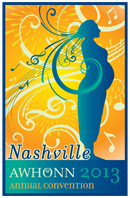The Birth of Baby Will: Supporting a Devout Catholic Couple Through the Birth and Death of Their Anencephalic Son
Title: The Birth of Baby Will: Supporting a Devout Catholic Couple Through the Birth and Death of Their Anencephalic Son
- Distinguish the possible psychosocial needs of a devout Catholic family facing the birth of an anencephalic infant.
- Discuss elements needed to help teams implement potentially controversial treatment plans.
- Discuss ways to support a family facing the loss of a baby with their grief.
Anencephaly is one of the most common neural tube defects. It occurs early in the development of the unborn baby when the neural tube fails to close, and according to the CDC, may affect as many as 1 in 4,000 pregnancies a year.
Because there is no treatment for these infants, and the condition is catastrophic and renders the child without the possibility of ever gaining consciousness, many women choose to terminate the pregnancy when they receive the diagnosis.
There are women for whom this is not an option because of their religious beliefs. The Catholic Church is one faith group that doesn’t endorse termination, and supports carrying the fetus as close to term as possible without endangering the mother, to honor the child’s life, for as long as possible.
Case:
K.P. came to us for care during her 4thpregnancy. She found out she was carrying an anencephalic child. She had all of her previous children delivered via cesarean section at our hospital, and her physician had urged her to terminate this pregnancy to spare her the possible dangers of another c/section. She was unwilling to do this because of her faith, and was praying for a miracle for this child, or at least that his life would be honored no matter how short.
She approached me about her ‘wishes’ for Will’s brief life, including having her priest present at the birth to perform extreme unction, recovery in her patient room with her other children and parents present to share Will’s brief life, and for memories, and mementos to be made of their time together. She had decided to name this boy Will, to signify her acceptance of God’s Will.
Conclusion:
Though there were staff who were distressed at the additional danger they felt the mother was exposing herself to, there were those who were glad to help support this family at this difficult time. We worked with K.P. to arrange to fulfill her desires. As is often the case we received more from K. P. than we gave. K.P. has been able to move on from this experience, with the help of counseling, her faith community, and the feeling that she did the right thing by little Will. We learned so much, and revitalized our Bereavement Committee after caring for the P family.
Keywords:
anencephaly, bereavement, cultural sensitivity, Catholic

